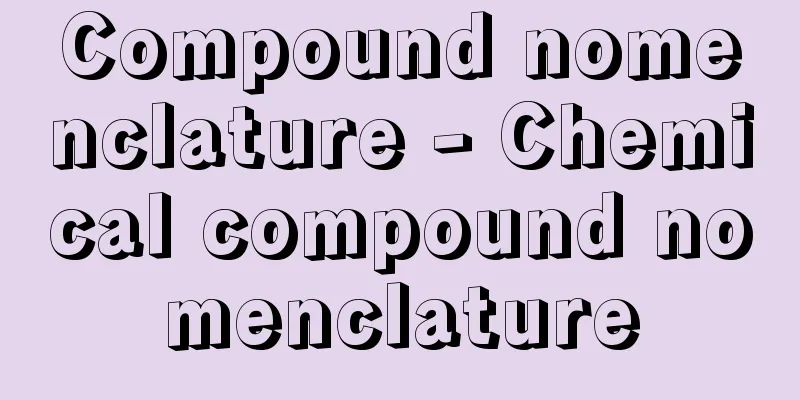Compound nomenclature - Chemical compound nomenclature

|
In the early days of chemistry, the number of chemical substances handled was not so large, and there was no problem with using habitual and vague names or names given by the discoverers themselves (many of which were based on appearance, people's names, place names, or other vague reasons). However, as chemistry developed and a huge number of compounds were recorded, such ununiform and unsystematic naming methods began to cause confusion and even misunderstandings, hindering the development of chemistry. Source: Heibonsha World Encyclopedia, 2nd Edition Information |
|
古く,化学が成立していく初期段階では,取り扱われる化学物質の数もあまり多くなく,習慣的なあいまいな名称や,発見者が勝手につけた名称(外観や,人名,地名あるいはあいまいな理由からきたものが多かった)を用いていても,それほど不都合なこともなかった。しかし化学の発展とともに,膨大な数の化合物が記録されてくると,そのような非統一的,非組織的な命名法では混乱を生じ,さらには誤解をまねくことになり,化学の発展をさまたげるようになる。
出典 株式会社平凡社世界大百科事典 第2版について 情報 |
Recommend
Eliza Orzeszkowa
1841‐1910 A representative Polish positivist novel...
Tamayama [Village] - Tamayama
A village in Iwate County, central Iwate Prefectur...
Boys' World
A magazine aimed at young readers. First published...
fritter
...It usually refers to meat, fish, shellfish, or...
Natural History Museum
…In recent years, the traditional display of spec...
Kerberos (English spelling)
In Greek mythology, it is the guard dog at the en...
Peloponnēsos (English spelling)
…the peninsula in southern Greece that forms the ...
Cannabich, CK (English spelling)
...German composer. He was a member of the Mannhe...
Asbestos cement board
Also called asbestos slate. An asbestos cement pro...
New building materials
A slang term for newly developed building material...
Elista - Elista (English spelling) Элиста/Elista
Located in the southwest of the Russian Federatio...
Itel'men (English spelling) Itelmen
...After contact with Russians (late 17th century...
Sārī (English spelling) Sari
...Because of its political insignificance, Islam...
Loi Falloux - Falloux (English spelling)
This is a decree on the education system enacted i...
Tipi (English spelling)
A cone-shaped tent used as a dwelling by the Plain...









